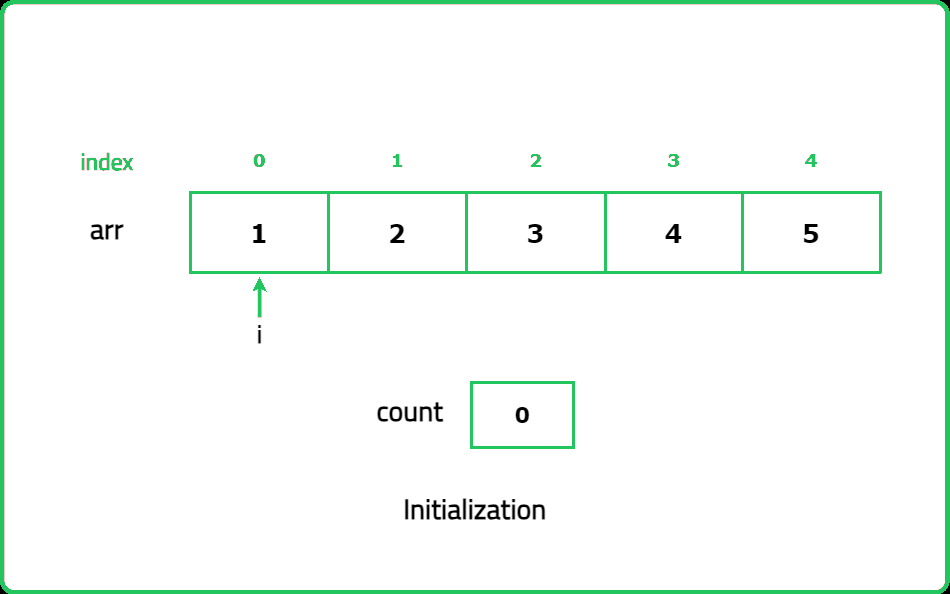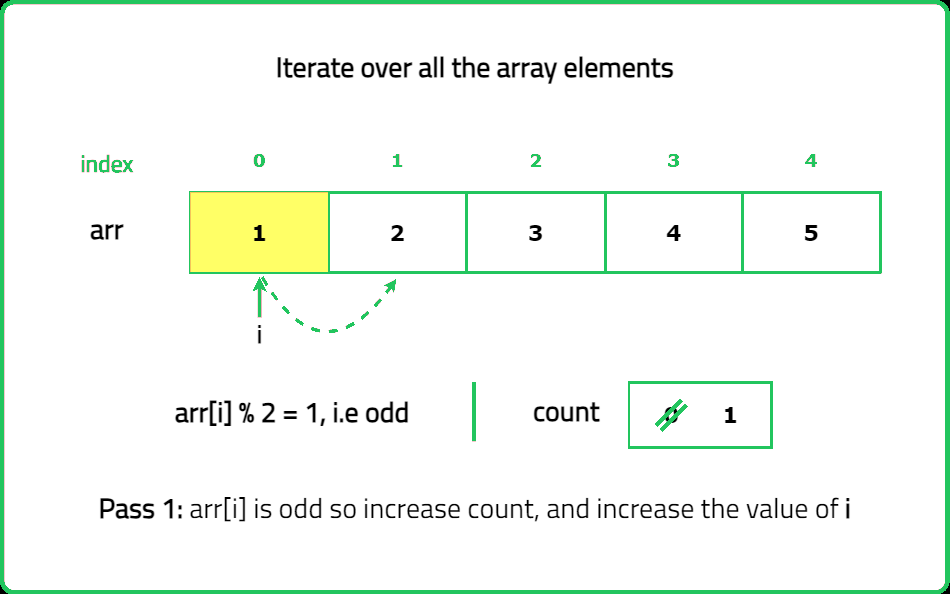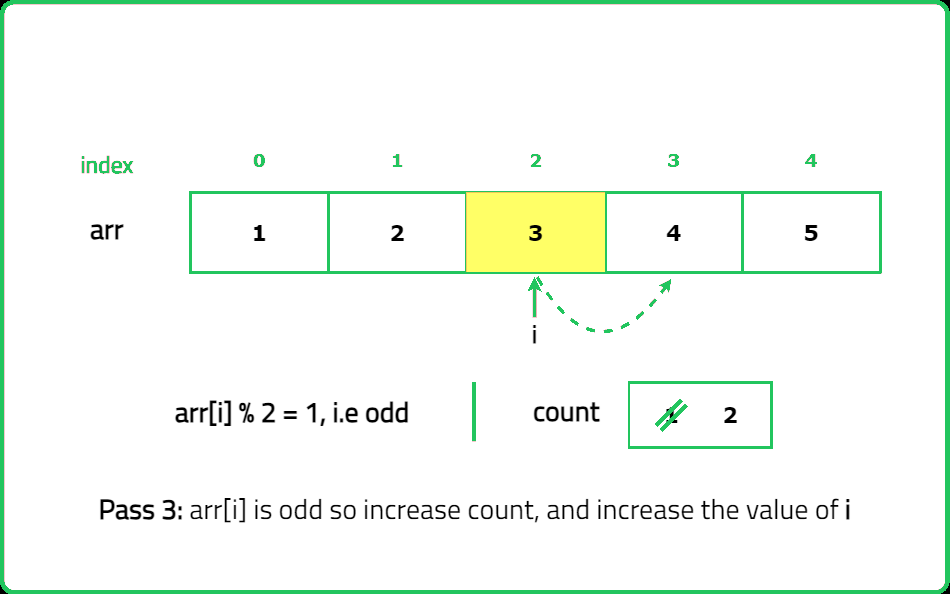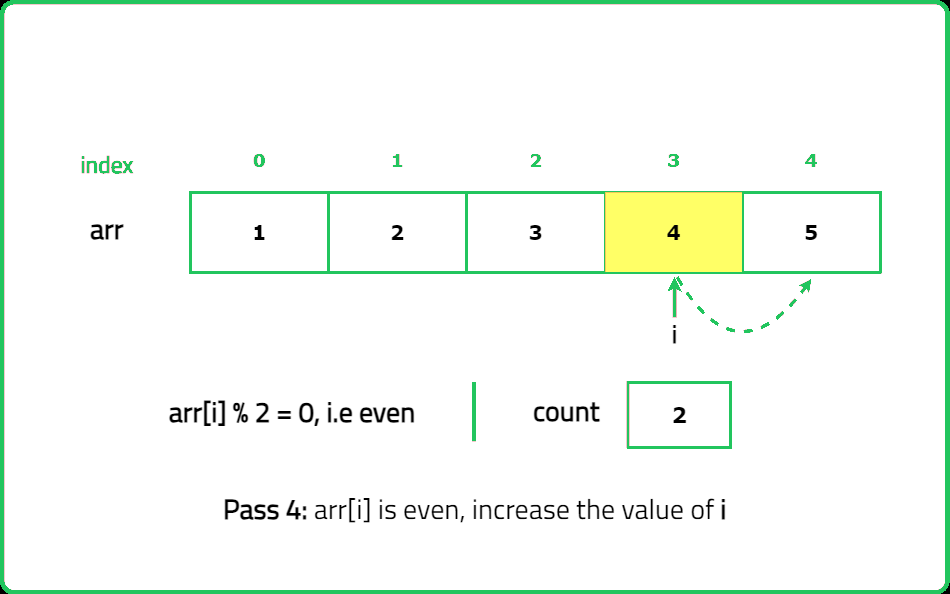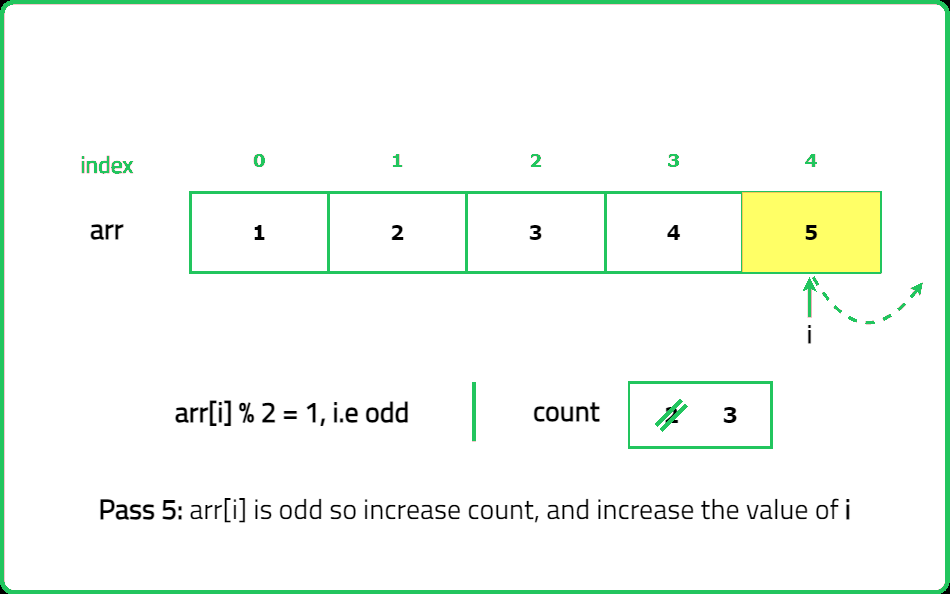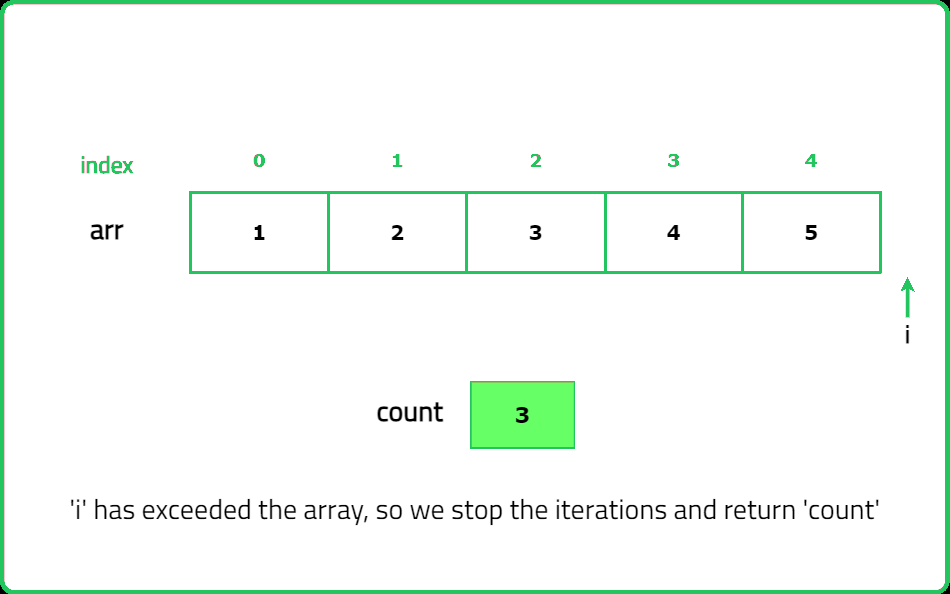Count of odd numbers in array
Beginner Problems
Basic Arrays
Easy
- Here's a fun fact: this problem is a basic exercise in data analytics, which is a massive part of the software industry
- Almost all major companies - like Facebook, Google, Amazon - use data analytics to make informed decisions
- This task is similar to finding specific patterns in the data, such as user habits or preferences
- It's like asking, "how many users made purchases at odd-numbered hours?" or "how many users have spent an odd amount of money on our platform?" Understanding these patterns helps companies enhance their user experiences and profitability
Given an array of n elements. The task is to return the count of the number of odd numbers in the array.
Examples:
Input: n=5, array = [1,2,3,4,5]
Output: 3
Explanation: The three odd elements are (1,3,5).
Input: n=6, array = [1,2,1,1,5,1]
Output: 5
Explanation: The five odd elements are one 5 and four 1's.
Input: n=5, array = [1,3,5,7,9]
Constraints
- 1 <= n <= 105
- 1 <= arr[i] <= 104
Company Tags
TCS
Cognizant
Accenture
Infosys
Capgemini
Wipro
IBM
HCL
Tech Mahindra
MindTree
